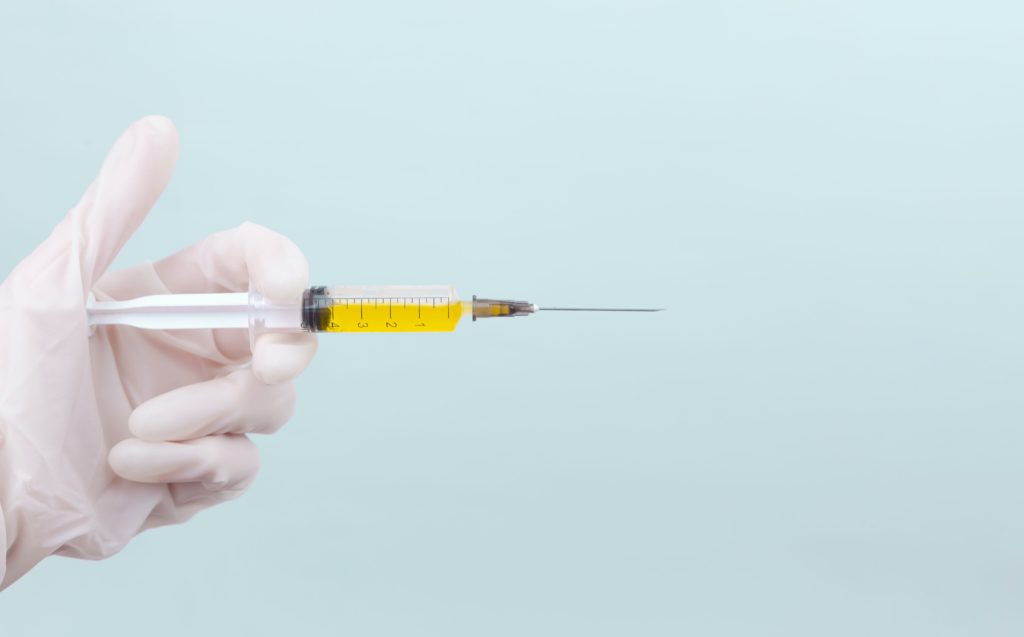What does IM mean in medical terms? If you are curious, keep on reading this article to know more.
What Does IM Mean In Medical Terms?

IM stands for intramuscular. This term is used to describe injections that are given directly into the muscle. This type of injection is usually faster and more effective than other types of injections, such as subcutaneous or intravenous injections. IM injections are commonly used to deliver medications and vaccines.
Interesting Read: What Does RR Mean In Medical Terms?
What Are The Benefits Of IM Injections?
IM injections are a popular method of administering medication. They offer many benefits over other methods, such as oral or intravenous administration.
One advantage of IM injections is that they allow the medication to be delivered directly to the bloodstream. This bypasses the digestive system, which can break down or absorb the medication before it ever reaches its intended target.
In addition, IM injections are less likely to cause nausea and vomiting than other methods. This is because the medication is not exposed to the stomach lining, which can trigger these side effects.
Finally, IM injections provide a more predictable and consistent dosage than other methods. This is because the same amount of medication is delivered to the same location each time. As a result, IM injections are an effective and reliable way to administer medication.
Interesting Read: How To Reduce Swelling After Surgery?
What Are Some Common Uses For IM Injections?

There are many different reasons why someone might need an IM injection. For example, IM injections are commonly used to deliver vaccines, such as the flu vaccine. They can also be used to treat conditions such as rheumatoid arthritis and multiple sclerosis.
In addition, IM injections are sometimes used to administer IVF treatments and other medications that need to be delivered directly into the bloodstream. Whatever the reason, IM injections are a safe and effective way to deliver medication into the body.
IM injections are typically given into the muscles of the upper arm, thigh, or buttock. The site of injection is usually determined by the size of the muscle and the amount of medication that needs to be administered. Once the needle is inserted into the muscle, the medication is injected slowly over 10-15 seconds. It is important to wait for at least 10 seconds before withdrawing the needle to ensure that all of the medication has been properly delivered.
After an IM injection, it is normal to have some localized pain and swelling at the injection site. These side effects usually resolve within a few days. If you have any concerns or experience any severe side effects, be sure to contact your doctor or healthcare provider.
IM injections are a safe and effective way to administer medication. They offer many benefits over other methods, such as oral or intravenous administration. IM injections are less likely to cause nausea and vomiting than other methods. In addition, IM injections provide a more predictable and consistent dosage than other methods. Whatever the reason, IM injections are a safe and effective way to deliver medication into the body.
Interesting Read: How To Sleep After Kidney Surgery?
Are There Any Risks Associated With IM Injections?
Are there any risks associated with IM injections? IM (intramuscular) injections are given into the muscle. Several muscles in the body can be used for an IM injection, including the arm, thigh, and buttocks. The injection site is determined by the medication being injected and the patient’s individual needs.
For example, a large muscle is often used for a child who is receiving an immunization because it provides a larger surface area for the injection. An adult who is receiving a small amount of medication may have the injection site in the arm.
IM injections are generally safe and well-tolerated. However, there are a few potential risks associated with this type of injection. The most common complication is pain at the injection site. This can usually be treated with ice or a topical analgesic such as lidocaine.
In rare cases, the needle may hit a nerve or blood vessel, causing temporary pain, numbness, or bleeding. More serious complications, such as infection or inflammation, are also possible but very rare. To help minimize the risk of complications, it is important to use a sterile technique when giving an IM injection and to choose an appropriate injection site.
What Should I Do If I Have A Complication From An IM Injection?

A complication from an IM injection can occur when the needle used to administer the medication penetrates too deeply into the muscle tissue. This can damage the nerves or blood vessels in the area, causing bruising, bleeding, or paralysis. If you experience any of these symptoms after an IM injection, it is important to seek medical attention immediately.
Your doctor will likely order a series of tests to determine the extent of the damage and may recommend surgery to repair the damage. In some cases, complications from an IM injection can lead to permanent disability or even death. As such, it is important to be aware of the potential risks before administering any medication via an IM injection.
Interesting Read: How To Sleep After Umbilical Hernia Surgery?
Conclusion
Immediate-release (IM) injections are a safe and effective method of administering medication. There are, however, a few potential hazards linked with this injection. Pain at the injection site is the most prevalent complication of the procedure. If the needle hits a nerve or blood vessel, the patient may experience momentary discomfort, numbness, or bleeding as a result of the procedure.
Infection and inflammation are also conceivable, but they are quite infrequent. A sterile injection method and an adequate injection site are critical to reducing the risk of problems during an IM injection. You must get medical assistance right away if you suffer any problems following an IM injection.
Frequently Asked Questions
Do IM Injections Hurt?
The pain of an IM injection can vary depending on the medication being injected, the size of the needle, and the patient’s pain tolerance. In general, however, most people report feeling a sharp pain when the needle first penetrates the skin followed by a dull ache as the medication is injected into the muscle. Ice and topical analgesics can help to lessen the pain associated with IM injections.
How Long Do IM Injections Take?
The amount of time an IM injection takes will vary depending on the medication being injected and the size of the needle. In general, however, most IM injections take only a few seconds to complete.
What Is The Difference Between An IM Injection And An IV Injection?
An IM injection is given into the muscle tissue, whereas an IV injection is given directly into the veins. The two types of injections are used to administer different types of medications. IM injections are typically used to deliver medications that are too irritating to be given intravenously. IV injections are generally used to deliver medications that need to be quickly absorbed into the bloodstream.
